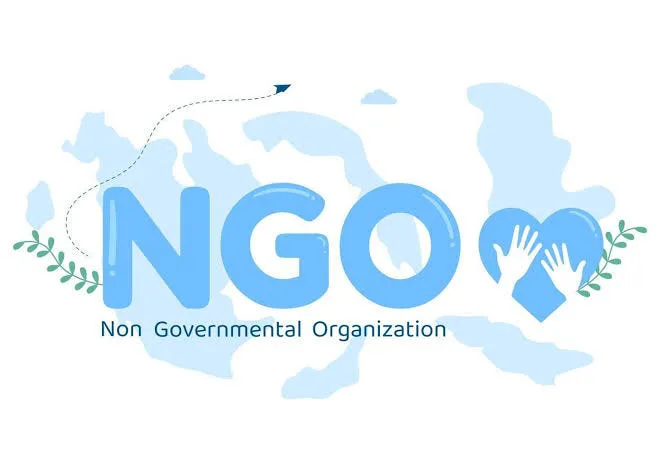Learn how to register an NGO in Nigeria with this step-by-step guide. From choosing a name to obtaining your certificate of incorporation, get all the details you need for a successful registration process.

Establishing a Non-Governmental Organization (NGO) in Nigeria can be a powerful way to create social impact and address societal challenges. Whether you aim to promote education, healthcare, or human rights, registering your NGO legally is crucial to gain credibility, access funding, and operate efficiently. This guide provides a detailed step-by-step process for registering an NGO in Nigeria.
What Is an NGO?
An NGO is a non-profit organization that operates independently of the government to address specific societal needs. In Nigeria, NGOs are usually registered as Incorporated Trustees under the Companies and Allied Matters Act (CAMA) 2020, supervised by the Corporate Affairs Commission (CAC).
Benefits of Registering an NGO in Nigeria
- Legal Recognition: Allows you to operate as a legitimate entity.
- Access to Funding: Many donors and grant-making organizations require NGOs to be registered.
- Tax Exemptions: Registered NGOs may qualify for tax exemptions under Nigerian law.
- Credibility and Trust: Builds confidence among donors, partners, and beneficiaries.
Requirements for Registering an NGO in Nigeria
Before you start the registration process, ensure you have the following:
- Proposed Name of the NGO
- Choose two unique names for your NGO in case one is rejected.
- Objectives of the NGO
- Clearly define the aims and goals of your organization.
- Board of Trustees
- Select at least two trustees, who will be responsible for overseeing the NGO.
- Office Address
- A physical address for your NGO’s operations.
- Constitution of the NGO
- A document outlining the rules, regulations, and structure of the organization.
- Valid Identification Documents
- National ID, International Passport, or Driver’s License of trustees.
Step-by-Step Process for Registering an NGO in Nigeria
Step 1: Choose a Name and Conduct a Name Availability Search
- Visit the Corporate Affairs Commission (CAC) website (https://www.cac.gov.ng) to check the availability of your proposed NGO name.
- If the name is available, reserve it online by paying the applicable fee.
- The reservation is valid for 60 days.
Step 2: Draft the Objectives and Constitution of the NGO
- Clearly state the purpose and objectives of your NGO, ensuring they align with non-profit activities.
- The constitution should include:
- Name and objectives of the NGO.
- Membership criteria.
- Roles and responsibilities of trustees.
- Rules for meetings, decision-making, and dissolution.
Pro Tip: Hire a legal expert to draft the constitution to ensure compliance with Nigerian law.
Step 3: Appoint a Board of Trustees
- Select individuals with integrity and experience relevant to the NGO’s mission.
- The minimum number of trustees is two, but you can appoint more depending on your organizational needs.
- Obtain written consent from all trustees, along with copies of their identification documents.
Step 4: Public Notice of Incorporation
- Publish a notice of your NGO’s incorporation in two national newspapers.
- The notice should include:
- Proposed name of the NGO.
- Objectives.
- Names of the trustees.
- Office address.
Why This is Necessary: The public notice allows members of the public to raise objections if they have valid reasons.
Step 5: Complete the Online Application on the CAC Portal
- Log in to the CAC portal and fill out the Incorporated Trustees Registration Form.
- Upload the following documents:
- Approved name reservation slip.
- Constitution of the NGO.
- Trustees’ identification documents.
- Public notice publications.
- Passport photographs of trustees.
- Evidence of payment for registration fees.
Registration Fees: The cost varies but is typically around ₦40,000–₦60,000, depending on the specifics of the application.
Step 6: Await Approval from the CAC
- The CAC will review your application and verify the documents submitted.
- If your application is approved, you will receive a certificate of incorporation.
Timeline: This process can take 2–6 weeks, depending on the complexity of the application.
Step 7: Open a Bank Account for the NGO
- After incorporation, open a corporate bank account in the name of the NGO.
- Provide the bank with:
- Certificate of incorporation.
- Constitution of the NGO.
- Tax Identification Number (TIN).
- Resolution from the board of trustees authorizing the account opening.
Step 8: Register for Tax Identification Number (TIN)
- Apply for a TIN from the Federal Inland Revenue Service (FIRS).
- As a registered NGO, you may be eligible for tax exemptions if you meet the criteria.
Key Considerations When Registering an NGO
Legal Compliance
- Ensure that your activities are strictly non-profit and align with the stated objectives of your NGO.
- File annual returns with the CAC to maintain your NGO’s active status.
Transparency
- Maintain proper financial records to build trust with donors and regulatory bodies.
- Publish annual reports to showcase your impact and financial accountability.
Sustainability
- Develop a long-term funding strategy, including grants, donations, and partnerships.
Common Challenges and Solutions
| Challenge | Solution |
|---|---|
| Name Rejection | Reserve multiple names to increase approval chances. |
| Delays in CAC Approval | Ensure all documents are accurate and complete. |
| Difficulty in Fundraising | Build a strong online presence and apply for grants. |
| Legal Issues | Hire a lawyer to navigate complex regulations. |
Registering an NGO in Nigeria may seem like a daunting process, but with the right guidance and determination, it’s achievable. By following the steps outlined in this guide, you can establish a legally recognized NGO that impacts lives and drives meaningful change. Remember to prioritize transparency, sustainability, and legal compliance to build a reputable organization.





